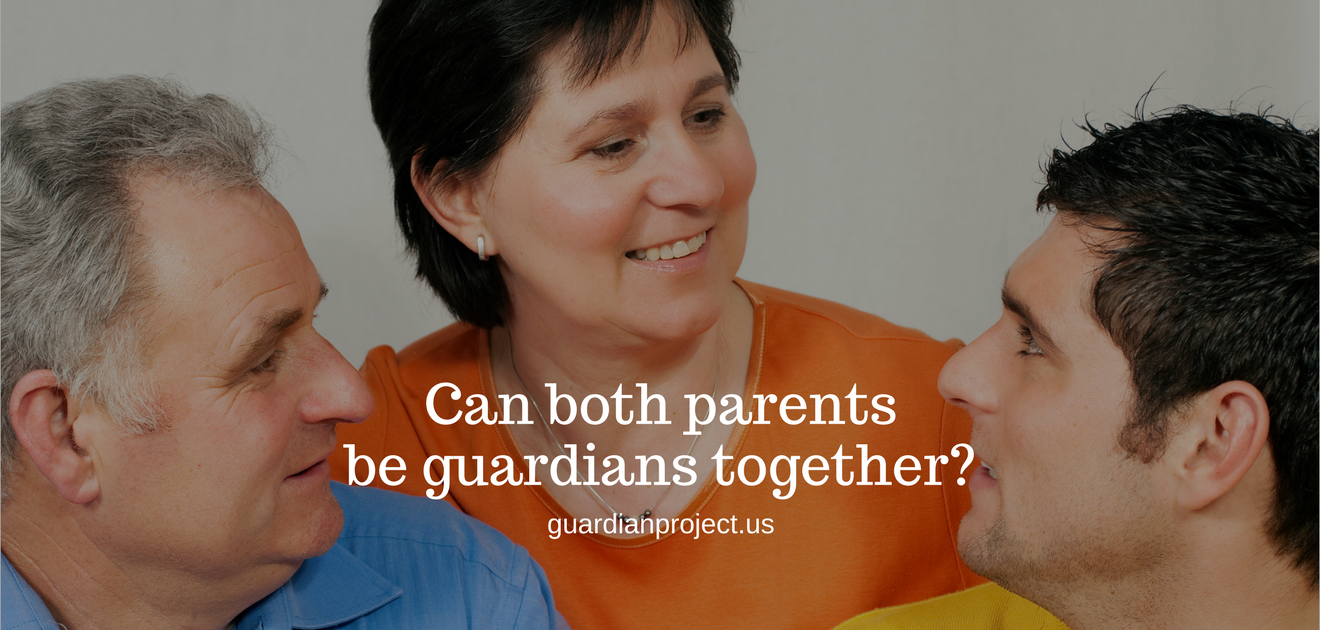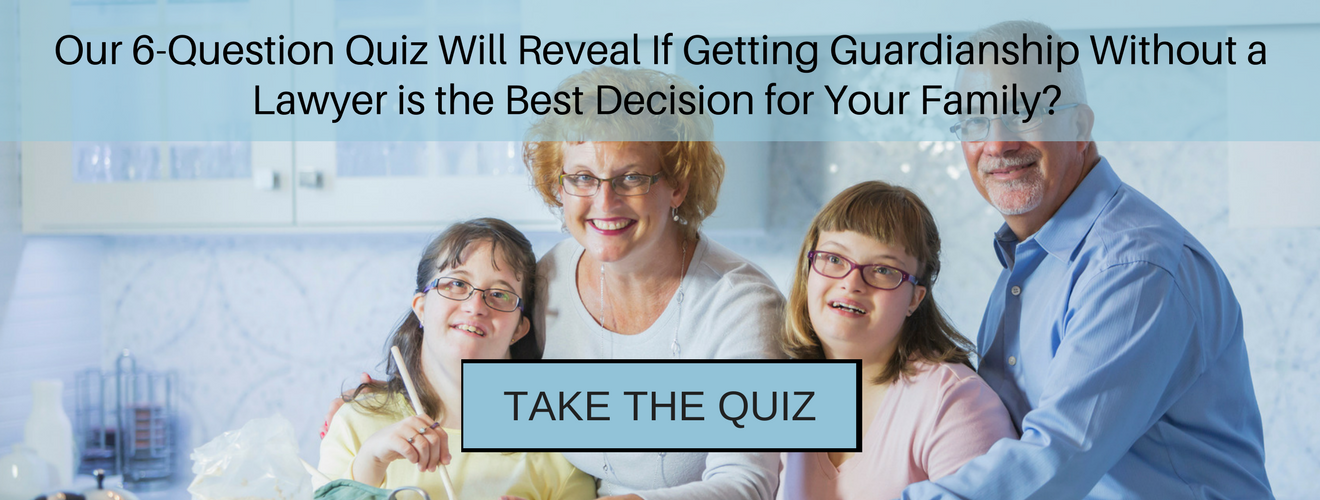For parents of kids with special needs in Florida, co-guardianship is one way they can both continue to make decisions for their adult child, but with some significant risks.
Ed and Lisa’s daughter Ariah has a developmental disability and was turning 18. Like most special needs parents, Ed and Lisa knew they had to consider guardianship for Ariah, who has poor expressive language skills and needs help with basic life skills.
Ed and Lisa are active parents, both sharing equally in the responsibility of caring for their daughter. But when it came time to complete the application for guardianship, the forms they got from the court made it seem that only one parent could serve as guardian.
While they both decided that Lisa should be the guardian, Ed felt like he was relinquishing some of his rights as a parent.
Even though the “standard” guardianship forms Florida courts publish are for one applicant, there are no rules preventing two people from becoming co-guardians.
So in Ed and Lisa’s case, with some basic modifications to their guardianship application, they could have asked the court to be appointed as co-guardians for Ariah.
Co-Guardianship’s Fatal Flaw That Can Hurt Your Child
Even though two parents can be co-guardians for their child with special needs, many guardianship lawyers advise against it.
There’s a significant flaw with co-guardians: both guardians must agree on every decision, creating the possibility of a deadlock.
For example, if a child with developmental disability wants to apply for a job, the co-guardians must agree whether or not their child can work and, if so, what type of job is appropriate.
If the co-guardian parents do not agree, no action can be taken and the issue must be presented to the probate court for a decision. This may involve multiple court appearances, which can be costly and time consuming.
Examples of Co-Guardian Disputes
Jacksonville attorney Rebeccah Beller has seen disagreements come up when married parents get co-guardianship and later get divorced. So, parents with unstable marriages should think carefully about pursuing co-guardianship with their spouse.
Illinois attorney James Siebert has seen disagreements between co-guardians come up when dealing with emotional issues like residential placement, medication and end of life decisions.
Sibert has been involved in several guardianship cases where co-guardians have disagreed, including where:
- Guardian A wants to change the ward’s attorney and Guardian B does not,
- Guardian A wants to place their child in a residential facility, but Guardian B wants the child to remain in the family home, and
- Guardian A thinks that ward needs psychotropic medications recommended by the ward’s physician and Guardian B does not.
“The impact on the ward is mostly financial,” says Siebert. Guardianship controversies can involve lawyers for the guardians and the ward, which are all paid from the ward’s funds. “If the ward is young, and needs those funds to pay for supplemental needs for the rest of his or her life, the unnecessary expenses could impact the ward’s quality of life options in the future.”
In Florida, because there is no rule against parents serving as co-guardians, if two parents understand and are willing to accept the risks, there’s nothing to prevent them from moving forward.
According to Rebeccah Beller, “if co-guardianship makes sense for a particular situation, then parents should present it to the judge as appropriate.”
A Risk Free Work-Around for Parents
In the case of two parents who are active in making decisions for their child and would like to continue to do so once he or she turns 18, one risk-free option is to appoint one parent as “guardian of the person” and the other as “guardian of the property.” The former would have sole responsibility for managing decisions like healthcare and living arrangements, while the latter has sole responsibility for the child’s financial affairs.
In this instance, both parents get to participate in the management of their child’s affairs without risking deadlock.
But What Happens If I Die?
Once appointed as guardian by a court, you cannot appoint a replacement guardian for your child through your will. Having a co-guardian resolves this problem since the surviving guardian can continue alone.
But it isn’t necessary.
In Florida, you can appoint a “standby” guardian who is approved by the court to take over as guardian should you become unable or unwilling to continue. The standby guardian has no rights as guardian until you stop serving, but their ability to serve as guardian is automatic upon your death, ensuring no lapse in care for your child.
Conclusion
Every co-parenting relationship is unique. If you have a stable relationship and are generally on the same page with life decisions for your child, co-guardianship is an option for parents. But the risk of deadlock needs to be carefully weighed, especially if your relationship with the co-guardian changes for the worse down the road.

